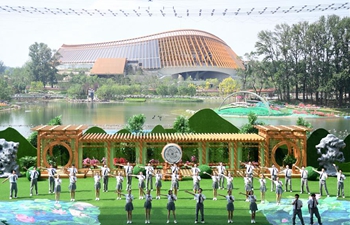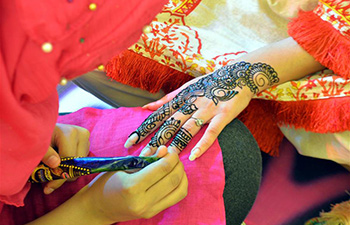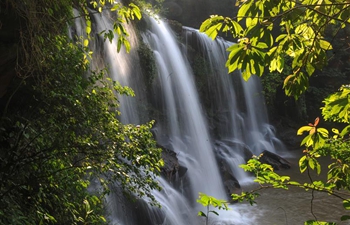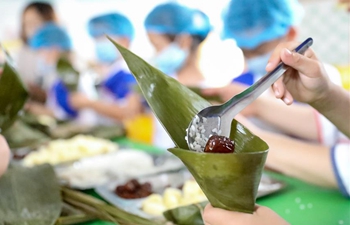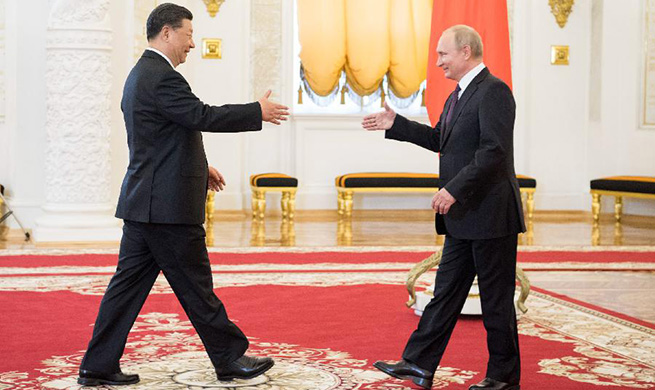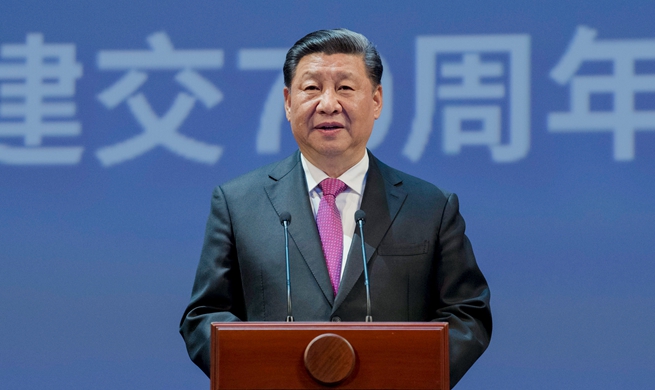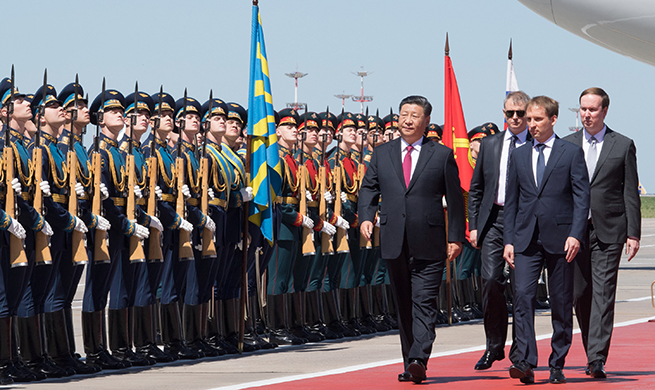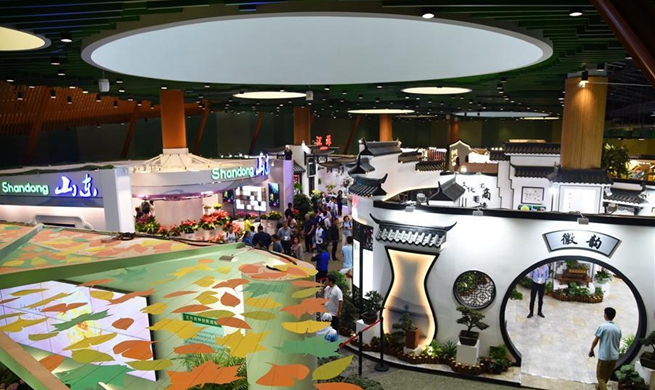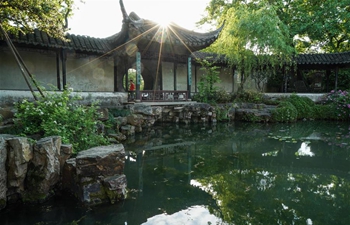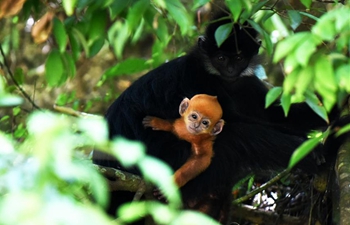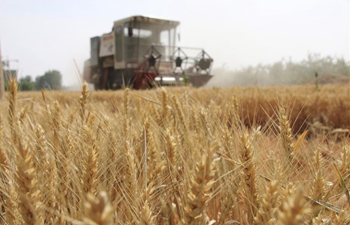CHANGSHA, June 6 (Xinhua) -- The Tujia people, one of the largest ethnic minority groups in China, on Thursday celebrated the Sheba Festival with huge gatherings, lively dances and bilingual events.
Thousands of ethnic Tujia people and tourists gathered in Longshan County in central China's Hunan Province, where parades and collective dances were held to honor gods and ancestors and pray for a good harvest.
With a population of over 8 million, Tujia is the seventh largest of China's 55 ethnic minority groups. They mainly inhabit mountainous areas that straddles provinces of Hunan, Hubei, Guizhou and Chongqing Municipality.
Longshan and its nearby regions are home to settlements that still speak the Tujia language, and their ancestral temples attract revelers from nearby areas for their grand rituals.
At 9 a.m., the grand ancestral temple of Xichehe Town was a crowded sight of red-and-green traditional costumes opulent with flower patterns and shining silver accessories.
The head priest led the prayers in the Tujia language, followed by dancing of hundreds of villagers. The locals also raced dragon boats in the river to mark the upcoming Dragon Boat Festival Saturday.
The Sheba Festival, an important occasion for Tujia people to revel, socialize and pay tribute to ancestors, does not have a fixed date but usually precedes Dragon Boat Festival.
BILINGUAL EVENT
In recent years, the festival has increasingly crawled out of obscurity as the local government steps up promotion of the Tujia language and culture.
Tujia has its own language but no writing system, and fewer than 1 percent of the population still speak the Tujia language, said Liu Nengpu, an expert on Tujia culture, adding that most Tujia speakers now live in the counties of Longshan, Yongshun and Baojing.
"The hilly terrain and difficult traffic of Longshan hindered economic development but helped preserve the pristine culture, making it a living museum of Tujia culture," Liu said.
Wu Wenhua, party secretary of the county's cultural and tourism bureau, said the government was stepping up efforts to conserve the ethnic cultural heritage, including by setting up funds to support masters of traditional arts and craftsmanship and bringing Tujia culture into schools.
To encourage more local youth to speak Tujia, cultural activities such as the Sheba Festival have been made bilingual, with hosts speaking both Mandarin Chinese and Tujia, according to Wu.
This year, the government limited the number of revellers out of safety concerns but erected large screens for spectators. Four media outlets were also invited to live broadcast the event online for Tujia dwellers in other cities and expatriates.
"This year's celebration is broadcast on more platforms and has attracted a record number of online viewers," Wu said.




